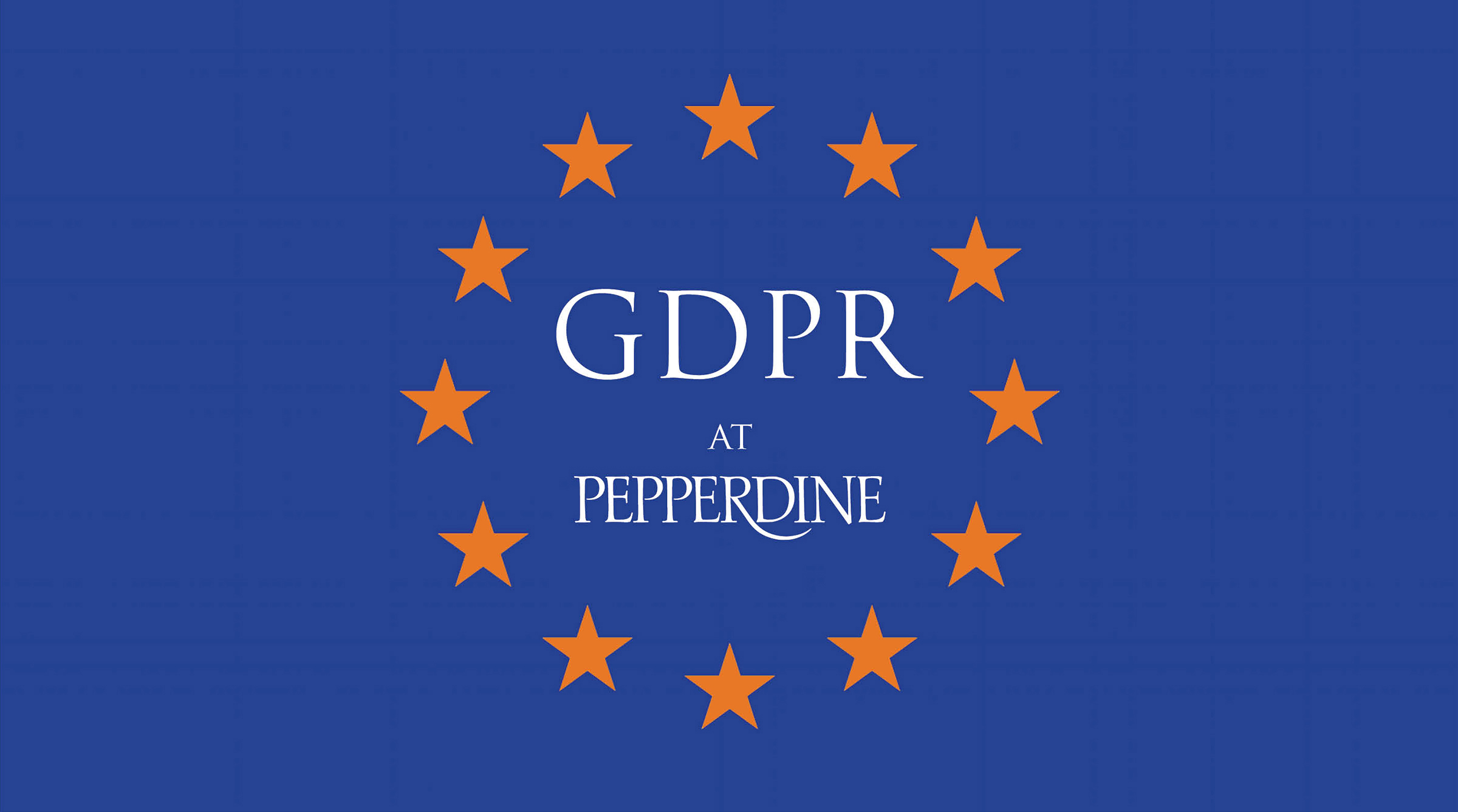Pepperdine Locking Down Worldwide GDPR Compliance
 Overview
Overview
At a time when data security and privacy are under constant global attack, the European
Union (EU) put the General Data Protection Regulation (GDPR) into effect on May 25,
2018. Since that time, both Pepperdine University and the State of California have
added their own efforts to support GDPR enforcement. But what does that mean for
the Pepperdine community?
With the GDPR, the EU set global standards for data protection in data centers, the
cloud, or anywhere data is stored. That includes data portability, quality, security,
reporting, assessments and certifications. How seriously is the EU taking the measure?
Failure to comply with the GDPR could result in fines up to 20 million Euros (more
than $23 million).
The GDPR's primary focus is to protect the personal data of EU citizens and member
states, but the legislation is being adopted by the global community, reaching around
the world and touching Pepperdine and all its programs.
The Pepperdine Perspective
"With Pepperdine's International Program, we have locations in Italy, Germany, Switzerland,
and the United Kingdom," said Pepperdine University's Chief Information Officer Jonathan
See. "We attract students from European countries and we send students to these campuses,
so we will work to be in compliance with the GDPR. It's important to understand that
compliance is equally imperative for Buenos Aires, Shanghai and all our domestic campuses
as well.
"The regulation affects Pepperdine and how we handle data," See continued. "So, as
one institution, we must review our business practices on data management and make
adjustments where necessary to ensure compliance. We have been working with the General
Counsel's office, because GDPR is a new law and we have to account for all of our
data in transit, wherever it may live.
"The GDPR is an excellent opportunity to build on Pepperdine's existing information
security practices to safeguard our community and data," See noted. "We have updated
our Privacy Policy and created a new GDPR Privacy Notice. We are also conducting
a comprehensive data inventory project and reviewing our current data processing practices
so we can move forward with our regulatory compliance efforts.
"As we review our data inventory university wide, other issues will likely arise that
we will address accordingly," See said. "I envision mini business process improvement
projects popping up, and we will have to create micro teams to help define best practices
moving forward. This is a vital initiative and there are many facets to consider
in improving our data management practices. It's important for our community to trust
that Pepperdine is working to be fully compliant in all our programs."